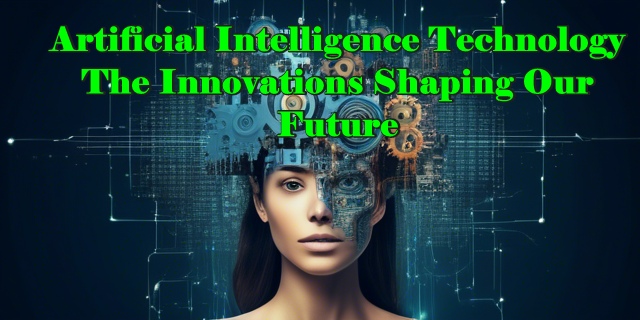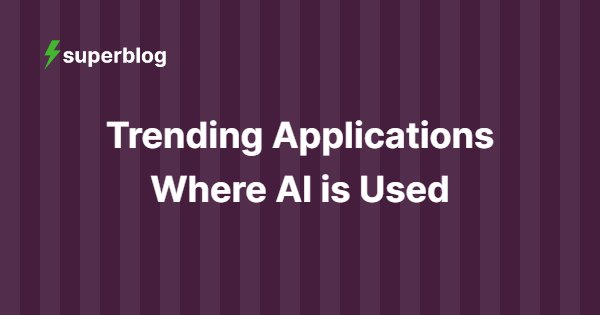The internet as we know it is on the cusp of a major transformation. OpenAI, the leading artificial intelligence research and deployment company, is poised to launch an OpenAI to launch AI-powered web browser, a move that could redefine how we interact with and navigate the online world. This comprehensive guide explores the potential features, benefits, and implications of this groundbreaking technology, providing you with everything you need to know about this exciting development.
1. The Dawn of the AI-Powered Browser: What We Know So Far
The news that OpenAI to launch AI-powered web browser has sent ripples through the tech community. While official details remain scarce, speculation is rife about the potential capabilities and impact of this new tool. The core idea is to integrate AI directly into the browsing experience, moving beyond simple search bars and offering a more intelligent and intuitive way to access and process information online. This browser is expected to leverage OpenAI’s advanced AI models, potentially including GPT-4 or its successors, to understand user intent and provide more relevant and personalized results.
Think of it as having a built-in, highly knowledgeable assistant that can summarize articles, translate languages, generate content, and even answer complex questions directly within the browser. This represents a significant departure from the traditional browser model, which primarily serves as a conduit to websites.
2. Key Features Expected in OpenAI’s AI Browser: A Glimpse into the Future
While OpenAI remains tight-lipped about specific features, we can anticipate several capabilities based on their existing AI technologies and the needs of modern internet users. Here are some potential features we might see in the OpenAI to launch AI-powered web browser:
- Intelligent Summarization: Automatically condense lengthy articles or web pages into concise summaries, saving users time and effort.
- Real-Time Translation: Seamlessly translate web content into multiple languages, breaking down language barriers.
- AI-Powered Search: Go beyond keyword-based search and understand the context and intent behind user queries, providing more accurate and relevant results.
- Content Generation: Generate different creative text formats, like poems, code, scripts, musical pieces, email, letters, etc., directly within the browser based on user prompts.
- Code Interpretation: Understand and execute code snippets found on web pages, potentially allowing for interactive experiences and debugging.
- Personalized Recommendations: Learn user preferences and provide tailored recommendations for websites, articles, and products.
- Automated Task Completion: Automate repetitive tasks such as filling out forms, booking flights, or comparing prices.
- Contextual Awareness: Understand the context of the current web page and provide relevant information or assistance.
- Enhanced Privacy Features: Offer advanced privacy controls and data protection measures.
Example: Imagine reading a complex academic paper. Instead of sifting through dense text, the AI browser could provide a summarized version, highlight key findings, and even answer specific questions about the paper.
3. How OpenAI’s Browser Could Outperform Traditional Browsers
Traditional browsers like Chrome, Safari, and Firefox primarily focus on rendering web pages and providing basic navigation features. The OpenAI to launch AI-powered web browser has the potential to offer a significantly enhanced user experience by:
- Reducing Information Overload: AI-powered summarization and filtering can help users quickly find the information they need without being overwhelmed by irrelevant content. According to a study by the University of California, Irvine, the average office worker is interrupted every 11 minutes and takes 25 minutes to regain focus. An AI browser could help mitigate this by efficiently processing information.
- Increasing Productivity: Automating tasks and providing intelligent assistance can free up users to focus on more important work.
- Personalizing the Browsing Experience: Tailored recommendations and contextual awareness can make browsing more relevant and engaging.
- Improving Accessibility: Real-time translation and other accessibility features can make the internet more accessible to users with disabilities.
- Providing a More Intuitive Interface: AI can help simplify the browsing experience and make it more intuitive for users of all skill levels.
Actionable Insight: Consider how you currently spend your time online. How much time is wasted sifting through irrelevant information or performing repetitive tasks? An AI-powered browser could potentially save you significant time and improve your overall productivity.
4. Impact on Search Engines: Will Google Face a Serious Challenger?
The potential impact on search engines, particularly Google, is a major point of discussion surrounding the OpenAI to launch AI-powered web browser. While it’s unlikely to completely replace traditional search engines, it could significantly alter the way people search for information.
Here’s why:
- Direct Answers: Instead of simply providing a list of links, the AI browser could directly answer user questions based on its understanding of the web content. This bypasses the need to click through multiple websites to find the desired information.
- Contextual Search: The browser could understand the context of the user’s current activity and provide relevant information without requiring a separate search query.
- Personalized Search: The AI could learn user preferences and provide search results that are tailored to their individual needs.
However, Google has been investing heavily in AI as well. Their Search Generative Experience (SGE) already incorporates AI-powered summaries and insights directly into search results. The competition between OpenAI and Google will likely drive further innovation in the search landscape.
Expert Tip: Pay attention to how Google responds to the launch of OpenAI’s browser. Their reaction will provide valuable insights into the potential impact of this new technology.
5. Ethical Considerations and Potential Challenges
While the OpenAI to launch AI-powered web browser holds immense potential, it also raises several ethical considerations and potential challenges:
- Bias and Accuracy: AI models are trained on vast amounts of data, which can contain biases. It’s crucial to ensure that the browser provides accurate and unbiased information.
- Privacy Concerns: The browser will likely collect user data to personalize the experience. Protecting user privacy and ensuring data security is paramount.
- Job Displacement: Automation of tasks could lead to job displacement in certain industries.
- Misinformation and Manipulation: AI-generated content could be used to spread misinformation or manipulate public opinion.
- Dependence on AI: Over-reliance on AI could lead to a decline in critical thinking skills.
Data Point: A Pew Research Center study found that 72% of Americans are concerned about the potential for AI to be used to manipulate people.
Addressing these challenges will require careful consideration and proactive measures, including:
- Transparency: Clearly communicate how the AI works and how user data is collected and used.
- Accountability: Establish mechanisms for addressing errors and biases in the AI.
- Education: Educate users about the potential risks and benefits of AI.
- Regulation: Develop appropriate regulations to govern the use of AI.
6. The User Experience Revolution: Personalized and Intuitive Browsing
The OpenAI to launch AI-powered web browser promises a revolution in user experience. Imagine a browsing experience that anticipates your needs, understands your intent, and provides personalized information and assistance. This could lead to:
- More Efficient Information Gathering: Quickly find the information you need without wasting time sifting through irrelevant content.
- Enhanced Learning and Research: Easily access and understand complex information, making learning and research more efficient.
- Improved Productivity: Automate tasks and free up time for more creative and strategic work.
- More Engaging Entertainment: Discover new content and experiences tailored to your interests.
- Simplified Online Interactions: Make online interactions more intuitive and user-friendly.
Practical Advice: Think about the tasks you perform most frequently online. How could an AI-powered browser make these tasks easier and more efficient?
7. OpenAI’s Broader AI Strategy and the Browser’s Role
The OpenAI to launch AI-powered web browser is likely a key component of OpenAI’s broader AI strategy. It demonstrates their commitment to making AI more accessible and integrated into everyday life. This browser could serve as a platform for:
- Showcasing OpenAI’s AI capabilities: Demonstrating the power and potential of their AI models to a wider audience.
- Gathering user data to improve AI models: Collecting valuable data on user behavior to refine and improve their AI models.
- Developing new AI applications: Creating a platform for developing and testing new AI applications.
- Promoting AI literacy: Educating users about the potential benefits and risks of AI.
By integrating AI directly into the browsing experience, OpenAI aims to make AI a seamless and intuitive part of the internet.
8. Expert Predictions and Future Outlook
Experts predict that the OpenAI to launch AI-powered web browser could have a significant impact on the future of the internet. Some believe it could usher in a new era of personalized and intuitive browsing, while others are more cautious, citing ethical concerns and potential challenges.
- Long-Term Trends: We can expect to see a continued integration of AI into various aspects of the internet, including search, content creation, and e-commerce.
- Competitive Landscape: The competition between OpenAI, Google, and other tech giants will likely drive further innovation in the AI space.
- User Adoption: The success of OpenAI’s browser will depend on its ability to provide a compelling user experience and address ethical concerns.
The launch of this AI-powered browser is a significant step towards a future where AI is seamlessly integrated into our daily lives.
FAQ: Frequently Asked Questions
Q: When will the OpenAI AI-powered web browser be launched?
A: While there’s no official launch date, speculation suggests it could be within the next year. Keep an eye on OpenAI’s official announcements for updates.
Q: Will the browser be free to use?
A: The pricing model is currently unknown, but it’s possible that it will be offered as a free service with premium features available through a subscription.
Q: What are the potential benefits for average users?
A: The potential benefits include increased productivity, more efficient information gathering, and a more personalized and intuitive browsing experience.
Q: Will this browser replace traditional search engines like Google?
A: It’s unlikely to completely replace traditional search engines, but it could significantly alter how people search for information by providing direct answers and contextual search capabilities.
Q: What steps are being taken to address ethical concerns?
A: OpenAI is likely working to address ethical concerns by ensuring transparency, accountability, and data privacy in the development and deployment of its AI models.
Conclusion
The OpenAI to launch AI-powered web browser represents a potentially transformative shift in how we interact with the internet. While challenges and ethical considerations remain, the potential benefits of personalized, intuitive, and efficient browsing are significant. By understanding the key features, potential impacts, and ethical considerations, you can be prepared for the next evolution of the internet. Keep an eye on OpenAI’s announcements and be ready to explore the future of browsing. This browser is not just a new way to access the internet; it’s a glimpse into a future where AI is seamlessly integrated into our daily lives, making us more informed, productive, and empowered. Explore OpenAI’s website for more information and sign up for updates to stay informed about the launch of this groundbreaking technology.

